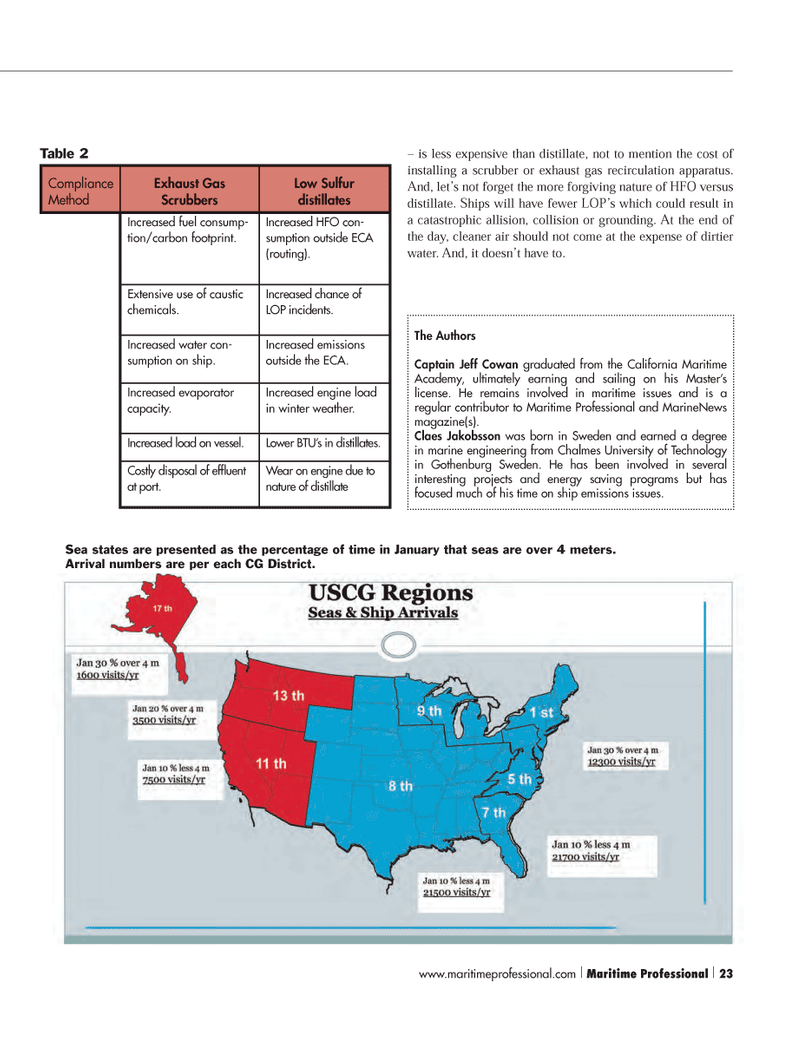
Page 23: of Maritime Logistics Professional Magazine (Q3 2014)
Power & Fuel Management
Read this page in Pdf, Flash or Html5 edition of Q3 2014 Maritime Logistics Professional Magazine
? is less expensive than distillate, not to mention the cost of installing a scrubber or exhaust gas recirculation apparatus. And, let?s not forget the more forgiving nature of HFO versus distillate. Ships will have fewer LOP?s which could result in a catastrophic allision, collision or grounding. At the end of the day, cleaner air should not come at the expense of dirtier water. And, it doesn?t have to. Sea states are presented as the percentage of time in January that seas are over 4 meters. Arrival numbers are per each CG District. Compliance MethodExhaust Gas Scrubbers Low Sulfur distillatesIncreased fuel consump-tion/carbon footprint.Increased HFO con-sumption outside ECA (routing).Extensive use of caustic chemicals.Increased chance of LOP incidents.Increased water con-sumption on ship. Increased emissions outside the ECA.Increased evaporator capacity. Increased engine load in winter weather. Increased load on vessel.Lower BTU?s in distillates. Costly disposal of ef uent at port. Wear on engine due to nature of distillate Table 2 The AuthorsCaptain Jeff Cowan graduated from the California Maritime Academy, ultimately earning and sailing on his Master?s license. He remains involved in maritime issues and is a regular contributor to Maritime Professional and MarineNews magazine(s).Claes Jakobsson was born in Sweden and earned a degree in marine engineering from Chalmes University of Technology in Gothenburg Sweden. He has been involved in several interesting projects and energy saving programs but has focused much of his time on ship emissions issues.www.maritimeprofessional.com | Maritime Professional | 2318-33 Q3 MP2014.indd 2318-33 Q3 MP2014.indd 238/15/2014 10:09:51 AM8/15/2014 10:09:51 AM

 22
22

 24
24
